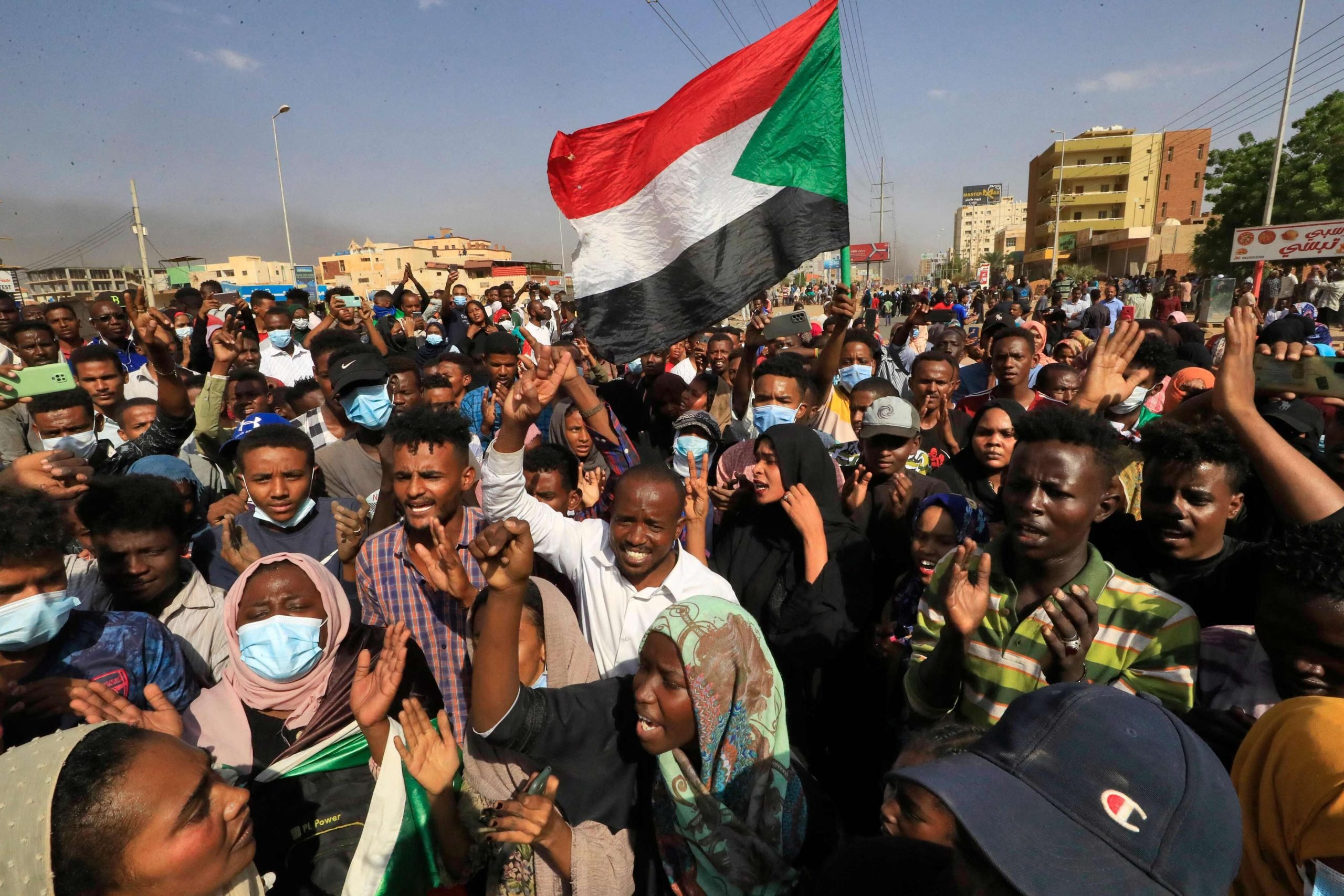The Gulf state had expressed its willingness to contribute to the success of Sudan’s transitional period.
Secretary-General of Qatar’s Foreign Ministry Ahmed Al Hammadi met with Sudan’s Ambassador to Doha Ahmed Al Dahab on Monday, the Gulf state’s foreign ministry stated, as Khartoum faces weeks of protests wracked by political instability.
The statement said both officials reviewed Qatar and Sudan’s bilateral ties, without stating further details on the meeting.
In an attempt to end Sudan’s years-long political crisis, renowned Sufi religious leader Al-Tayeb Al-Jed announced a political initiative in July, backed by army chief Abdel Fattah Al-Burhan.
The military chief said the initiative seeks to address Sudan’s deteriorating economy and aims to “achieve peace and security” by holding elections next year. Al-Burhan led a military group last year against the civilian government that contributed to Sudan’s political turmoil.
According to AFP, hundreds of Sudanese took to the streets on Saturday to express their support for the “Call of Sudan’s People” political initiative.
Despite this, the initiative failed to receive the support of Sudan’s civilian group, the Forces for Freedom and Change (FFC), which has called for an end to military rule in the country.
Civilian group leaders continue to echo the slogan of “no negotiation, no partnership” with the military.
During his announcement of the initiative, Burhan said the military would step out of negotiations with the civilian forces and allow the people to decide their own government.
In August 2019, four months into the revolution, military leaders signed a power-sharing agreement with the FFC, which formed a Sovereign Council. The declaration set late 2023 as the deadline for elections to elect a civilian administration.
Qatar had previously expressed its willingness to contribute to the success of Sudan’s transitional period.
Since the overthrow of former President Omar Al-Bashir in 2019, several coup attempts have taken place in the country – triggering condemnation from Doha, where calls for dialogue have continued to echo.
During the latest coup in October last year, the military junta placed Prime Minister Abdallah Hamdok on house arrest along with various other officials.
When Hamdok was released, he signed a political agreement with Burhan under which they agreed to lead a civilian government of technocrats for a transitional period.
The agreement received nation-wide rejection by pro-democracy protesters as it fell short of their demands to dismiss army generals from politics.
Sudan has been grappling with a fragile path to democratic rule since the military’s overthrow of Bashir, with the joint civilian and military government struggling to control a dire economic and political situation in the country.
Last month, the UN World Food Programme (WFP) in Sudan received $100 million from the World Bank.
“WFP is extremely grateful to the World Bank for this generous contribution, at a crucial time in Sudan when more and more people do not know where their next meal will come from,” said Eddie Rowe, WFP’s Representative and Country Director in Sudan.
The agency warned that 40% of Sudan’s population is at the risk of hunger by September
Qatar-Sudan ties
Qatar and Sudan have had strong relations since the two countries established diplomatic ties in 1972.
The Gulf state participated in the final signing ceremony of the peace agreement between the transitional government of the Republic of Sudan and the Sudanese Armed Movements in October 2020.
In 2011, Doha also sponsored a negotiation process that resulted in the Darfur Peace Agreement, which brought together the government of Sudan and the armed movements to end the six-year-long Darfur conflict.
At least 300,000 people were killed and around 2.7 million were displaced during the genocide.
Then in 2013, Qatar hosted the International Donors Conference for Reconstruction and Development in Darfur, where the country pledged to raise $7.2 billion to help rebuild the conflict area over a period of six years.







